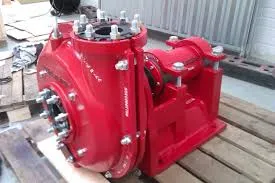Vietnamese
- Afrikaans
- Albanian
- Amharic
- Arabic
- Armenian
- Azerbaijani
- Basque
- Belarusian
- Bengali
- Bosnian
- Bulgarian
- Catalan
- Cebuano
- Corsican
- Croatian
- Czech
- Danish
- Dutch
- English
- Esperanto
- Estonian
- Finnish
- French
- Frisian
- Galician
- Georgian
- German
- Greek
- Gujarati
- Haitian Creole
- hausa
- hawaiian
- Hebrew
- Hindi
- Miao
- Hungarian
- Icelandic
- igbo
- Indonesian
- irish
- Italian
- Japanese
- Javanese
- Kannada
- kazakh
- Khmer
- Rwandese
- Korean
- Kurdish
- Kyrgyz
- Lao
- Latin
- Latvian
- Lithuanian
- Luxembourgish
- Macedonian
- Malgashi
- Malay
- Malayalam
- Maltese
- Maori
- Marathi
- Mongolian
- Myanmar
- Nepali
- Norwegian
- Norwegian
- Occitan
- Pashto
- Persian
- Polish
- Portuguese
- Punjabi
- Romanian
- Russian
- Samoan
- Scottish Gaelic
- Serbian
- Sesotho
- Shona
- Sindhi
- Sinhala
- Slovak
- Slovenian
- Somali
- Spanish
- Sundanese
- Swahili
- Swedish
- Tagalog
- Tajik
- Tamil
- Tatar
- Telugu
- Thai
- Turkish
- Turkmen
- Ukrainian
- Urdu
- Uighur
- Uzbek
- Vietnamese
- Welsh
- Bantu
- Yiddish
- Yoruba
- Zulu
Telephone: +86 13120555503
Email: frank@cypump.com
Th11 . 18, 2024 09:02 Back to list
septic system pump
Understanding Septic System Pumps A Comprehensive Guide
Septic systems play a crucial role in managing wastewater for homes that are not connected to municipal sewage systems. At the heart of many septic systems lies the septic pump, a vital component that helps ensure the efficient and safe disposal of waste. In this article, we will explore the function, types, maintenance, and troubleshooting of septic system pumps, providing you with a comprehensive understanding of their importance.
What is a Septic Pump?
A septic pump is a device used to transport wastewater from a septic tank to a drain field or other treatment area. It is designed to handle the movement of liquids, including sewage, away from the septic tank, especially in situations where gravity alone is not sufficient. In most systems, septic pumps are submersible, meaning they are placed underwater within the septic tank. This positioning helps reduce noise and odors associated with wastewater.
Types of Septic Pumps
There are several types of septic pumps, each designed for specific applications
1. Effluent Pumps These pumps are typically used to transfer treated wastewater from the septic tank to the drain field. They have a higher capacity to handle smaller solids compared to sewage pumps, making them ideal for transporting effluent.
2. Sewage Pumps As the name suggests, sewage pumps are designed to handle raw sewage, including larger solids. These pumps are used in systems where waste needs to be lifted vertically, such as in basement installations or homes located on hilly terrain.
3. Macerating Pumps These pumps are equipped with blades that grind waste into a slurry, allowing for easier transportation through smaller pipes. They are commonly used in homes where gravity drainage isn’t feasible.
4. Grinder Pumps Similar to macerating pumps, grinder pumps shred sewage and waste into a fine mixture before pumping it out. They are essential in systems that require waste to be pumped over long distances or to higher elevations.
Importance of Regular Maintenance
Maintaining your septic pump is essential for the longevity and efficiency of your septic system. Here are some key maintenance tips
septic system pump

- Regular Inspections Have your septic system, including the pump, inspected at least once a year by a qualified technician. This can help identify potential issues before they become major problems.
- Check the Float Switch The float switch is responsible for turning the pump on and off. Ensure it is functioning correctly and not stuck, as this can lead to overflows or pump burnout.
- Clean the Filter If your pump has a filter, clean it regularly to prevent clogging, which can impede performance.
- Monitor Pump Performance Pay attention to any changes in the pumping process, such as unusual noises or longer pumping times. These can be indicators of underlying issues.
Common Issues and Troubleshooting
Even with regular maintenance, septic pumps can encounter problems. Here are some common issues and troubleshooting tips
- Clogs One of the most common problems is clogs within the pump or pipes. To address this, you can use a plumber’s snake or contact a professional for more severe blockages.
- Burnt-Out Motors If the pump isn’t turning on, it could be due to a burnt-out motor. Check the circuit breaker and power supply before replacing the pump motor.
- Overflows If wastewater is backing up into your home or yard, it may indicate a failure in the pump or an overloaded system. Consulting a professional is crucial in this scenario.
Conclusion
Septic system pumps are vital for maintaining a healthy sewage disposal system, and understanding their function, maintenance, and potential issues can help prevent costly repairs or environmental hazards. By staying proactive with regular inspections and maintenance, homeowners can ensure that their septic systems run smoothly and efficiently, providing effective wastewater management for years to come. Whether you're building a new home or maintaining an existing septic system, knowing the intricacies of septic pumps is an essential part of responsible homeownership.
-
Custom Drilling Mud and Slurry Pump Supplier - High Efficiency, Tailored Solutions
NewsJun.10,2025
-
Supply Vertical Submersible Sewage Pump High-Efficiency WQ/QW Pumps Supplier
NewsJun.10,2025
-
Premium Sewage Ejection System & Pumps Efficient Waste Removal
NewsJun.09,2025
-
Premium Wholesale Slurry Pump Impellers Durable & Efficient Slurry Handling
NewsJun.09,2025
-
Top Sewage Pump Companies Durable Industrial Solutions for Efficiency
NewsJun.09,2025
-
Heavy Duty Slurry Pumps - OEM High Performance & Bulk Wholesale
NewsJun.09,2025










